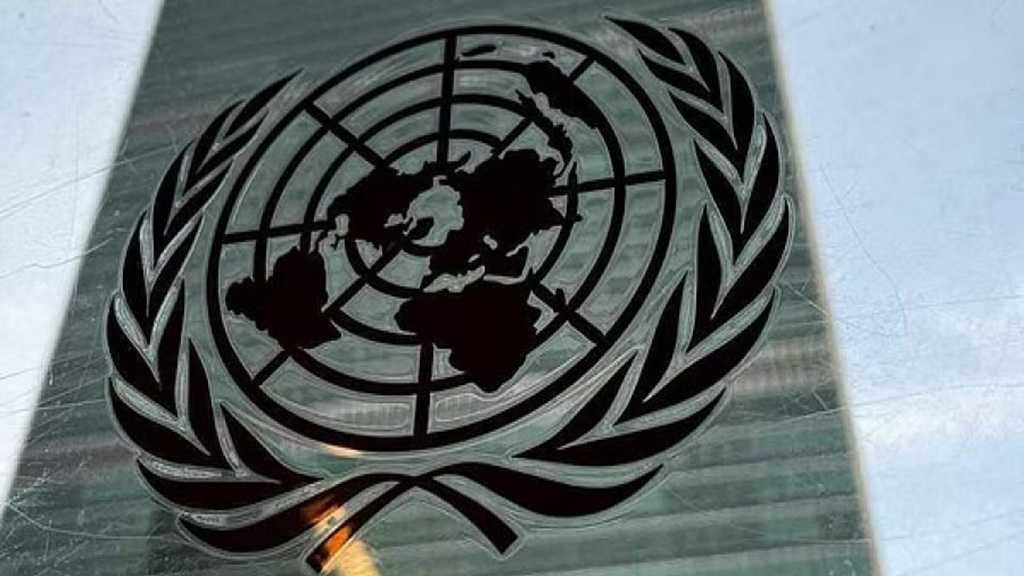
Palestinians Hail as A Victory UN Vote on “Israeli” Occupation and Annexation

By Staff, Agencies
Palestinians have welcomed a vote by the United Nations General Assembly, which calls on the International Court of Justice [ICJ] to give an opinion on the legal consequences of the decades-long “Israeli”-Palestinian conflict, “Israeli” “annexation” and the “legal status of the occupation” of Palestinian territories.
“The time has come for ‘Israel’ to be subject to law, and to be held accountable for its ongoing crimes against our people,” Nabil Abu Rudeineh, spokesman for Palestinian Authority [PA] President Mahmoud Abbas, said.
Senior Palestinian official Hussein al-Sheikh said on Twitter that Friday's vote “reflects the victory of Palestinian diplomacy.”
The resolution promoted by Palestinians passed by a vote of 87 in favor, 26 against, with 53 abstentions. Russia and China voted in favor of the resolution.
The “Israeli” entity, the US and 24 other members – including the United Kingdom and Germany – voted against the resolution, while France was among the 53 nations that abstained.
The resolution is titled “‘Israeli’ practices and settlement activities affecting the rights of the Palestinian people and other Arabs of the occupied territories” and calls on the Hague-based ICJ to “render urgently an advisory opinion” on “Israel’s” “prolonged occupation, settlement and annexation of Palestinian territory.”
It also calls for an investigation into “Israeli” measures “aimed at altering the demographic composition, character and status of the Holy City of al-Quds” and says the “Israeli” entity has adopted “discriminatory legislation and measures.”
The resolution demands the court weigh in on the conflict in accordance with international law and the UN charter.
Palestine’s UN ambassador Riyad Mansour noted that the vote came one day after the swearing-in of a new far-right “Israeli” cabinet led by hawkish prime minister Benjamin Netanyahu, which he said promises an expansion of illegal settlements and will accelerate “colonial and racist policies” towards Palestinians.
More than 600,000 “Israelis” live in over 230 settlements built since the 1967 “Israeli” occupation of the West Bank and East al-Quds [Jerusalem].
All “Israeli” settlements are illegal under international law. The UN Security Council has condemned the “Israeli” entity’s settlement activities in the occupied territories in several resolutions.
Palestinians want the West Bank as part of a future independent state with East al-Quds as its capital.
The last round of “Israeli”-Palestinian talks collapsed in 2014. Among the major sticking points in those negotiations was the entity’s continued illegal settlement expansion.
Meanwhile, the Grand Mufti of the Sultanate of Oman has thrown weight behind the latest decision of the country’ lower house of parliament to expand its “Israel” boycott law.
Sheikh Ahmad bin Hamad al-Khalili wrote in a post published on his Twitter page that he strongly supports any motion at the 86-member Majlis al-Shura, or Consultative Assembly, that would ramp up sanctions and economic embargos against the occupying Tel Aviv regime over its insistence to ignore and violate the rights of the oppressed Palestinian nation.
“It is part of the obligations that rest on the shoulders on all Muslims” in the face of the Palestinian issue, he pointed out.
Earlier this week, Oman’s parliament voted to amend the first clause of its “Israel” boycott law to include any sports, cultural or economic contact for private and public figures.
The amendment also specifically bans in-person or online interaction with “Israeli” settlers.
Assembly Vice-President Yaaqoub al-Harethi said the amendment, proposed by several legislators, will “expand the criminalization and boycott of the Zionist entity,” according to the Omani WAF news agency.
The amendment now moves to debate by the Majlis legislative committee before a final vote.
Omani law already states that citizens are barred from making contact with individuals or entities based in the “Israeli” entity for any purpose, whether directly or through a third party.
Muscat officially adheres to the Arab League’s stance that any form of diplomatic relations with the “Israeli” regime is contingent on the establishment of an independent Palestinian state.



